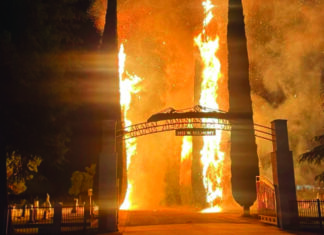 By Mackenzie Mays
By Mackenzie Mays
FRESNO (Fresno Bee) — New history lessons adopted by the California Board of Education this year may especially resonate with Fresno students and families. Schools are now required to teach about the Armenian Genocide — an important history in the Fresno area, which has a large Armenian American community.
The state’s revised history and social science framework — which also includes new content on the history of LGBT people and expanded teachings of Latino history — adds key facts relating to the Armenian Genocide and its causes, and asks teachers to link it to the Holocaust. Teachers also are to provide information on the “unprecedented American humanitarian response” to the genocide: relief efforts raised more than $117 million in the aftermath, saving more than 1 million refugees.
The new content, which is more inclusive and aims to teach students to think critically about historical events, is expected to show up in textbooks by 2018.
The Armenian Genocide was the Ottoman Turkish government’s extermination of 1.5 million Armenians that started in 1915, during World War I. The genocide came as the Ottoman Empire was declining and its Islamic leaders saw the Christian Armenians as a threat.
Turkish authorities first arrested hundreds of Armenian intellectuals who eventually were killed. “The remaining Armenians were ordered onto death marches into the Syrian desert, during which they were subjected to rape, torture, mutilation, starvation, holocausts in desert caves, kidnapping and forced Turkification and Islamization,” reads the curriculum framework for California’s 10th-graders.









